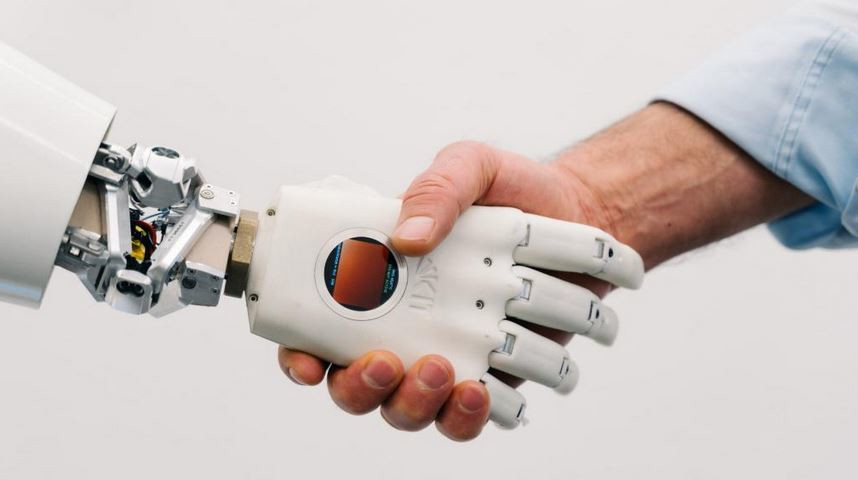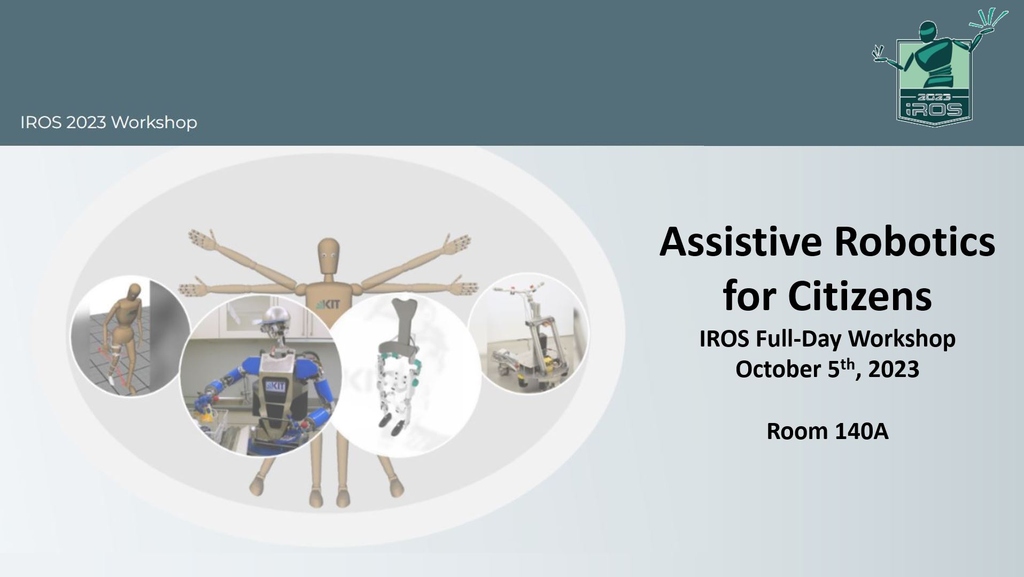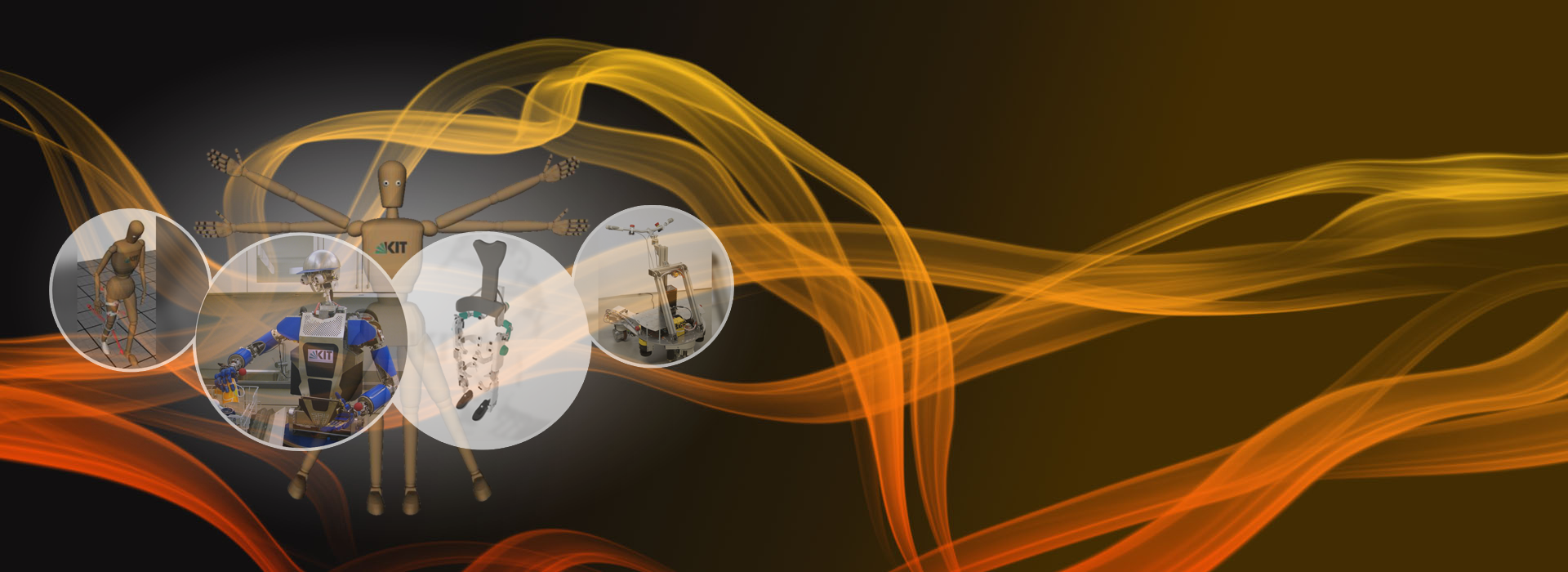Versatile Assistive Robotics for Mastering Daily Life
In an ageing society robotics can play a central role in the support and care of elderly people. Thereby robotics can preserve and foster autonomy and health of elderly people and support employees in healthcare. The JuBot project supported by the Carl-Zeiss-Foundation aims at the development of humanoid assistive robots and exoskeletons that provide personalized, learning assistance allowing elderly people to master their daily life. At KIT an interdisciplinary consortium of computer scientists, mechanical and electrical engineers, sport scientists, architects and scientists from ergonomics and technology assessment work towards this goal by designing robust, holistic robotic systems and skills.

Our work on AI-based assistive robot technologies within the JuBot project, funded by the Carl Zeiss Stiftung, has been shown as part of the ZEISS image film. The video shows the new generation of our humanoid robots, ARMAR-7, which has been developed to provide support to elderly in everyday activities and contribute to a longer self-determined life in old age.
To the image film
How do we want to "live together" with robots?
Can robots help us in caring for people?
What kind of robots do we want?
These questions were the focus of a theme week for citizens, organized by ITAS (Institute for Technology Assessment and Systems Analysis) from November 21 to 25, 2023.
A summary of the workshop results as well as a presentation of the interactive exhibition can be found on the website under the following link.
Further information
We have organized the workshop „Assistive Robotics for Citizens“ on the IROS 2023 in Detroit, USA together with researchers from Japan, Australia and France. The workshop discussed the development of assistive robots for all areas of social life, as for example caregiving, household chores and the support and augmentation of humans in work, sports and leisure. Further information on the workshop and the keynote and spotlight talks can be found on the workshop website.
To the workshop website
